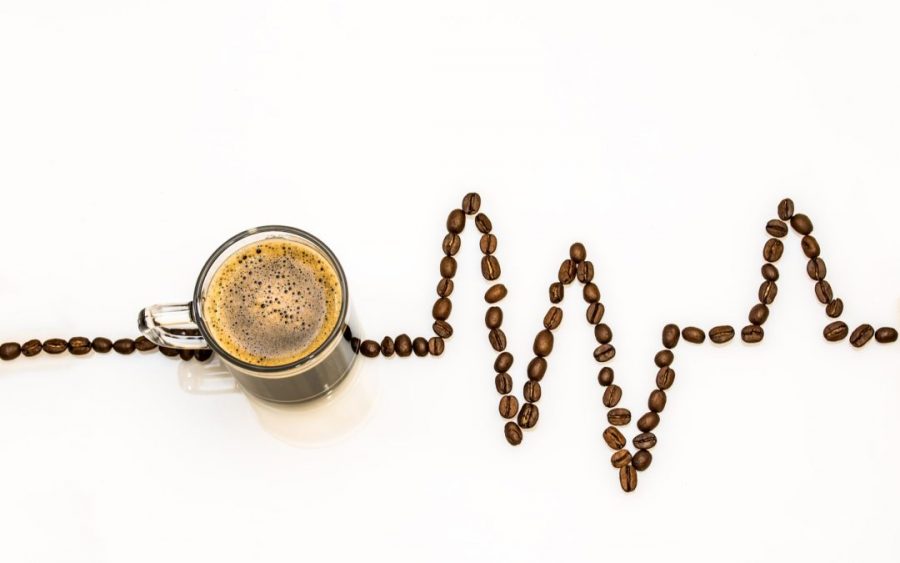Caffeine in Athletics
August 22, 2019
Caffeine, a central nervous system stimulant of the methylxanthine class, is the go-to supplement for many athletes. Unlike most substances and supplements, caffeine affects cells throughout the body, including cells in the muscle and brain. It is rapidly absorbed into the bloodstream, and peaks after 90-100 minutes. But what can the intake of caffeine cause?
Caffeine, the most widely used drug, enhances brain functions. It activates areas of the brain and nervous system to improve focus and energy, while reducing fatigue. One sports participant said that after ingesting 37.5 to 450 mg of caffeine, they had improved alertness, short-term recall, and reaction time. According to Drinkmetta, caffeine helps female volleyball players hit the ball harder and jump higher, rowers row further, and cyclists go faster in a 20K time trial.
Athletes see a benefit with a dose of between 3 to 6 mg per kg of body weight, which means that 140-pound cyclist would get a lift after drinking about two to four average-sized cups of coffee. Caffeine stimulates epinephrine, a hormone responsible for the “fight or flight” response, which can increase performance. Caffeine can increase the body’s ability to burn fat via lipolysis, or the breakdown of fat in fat cells.
According to an article written by Healthline, caffeine boosts endurance. Due to its positive effects on exercise performance, some organizations have even started to ban it in high doses. One study found that 9.8 mg of caffeine increased endurance in athletes, as they were able to cover 1.3 to 2 miles more than the placebo group. Compared to water and carbs, caffeine is the most powerful source.
However, too much caffeine is a no-go. Ingesting more than the recommended amount does not bring further improvements in performance. Regular doses can cause anxiety, sleeplessness and restlessness in some people. Worse, large amounts of the drug can be dangerous and even deadly. With that being said, careful usage of caffeine is very important for athletes. Always consider what you eat and drink before proceeding a sports event.
Photo courtesy of MELISSABOUFOUNOS.COM

